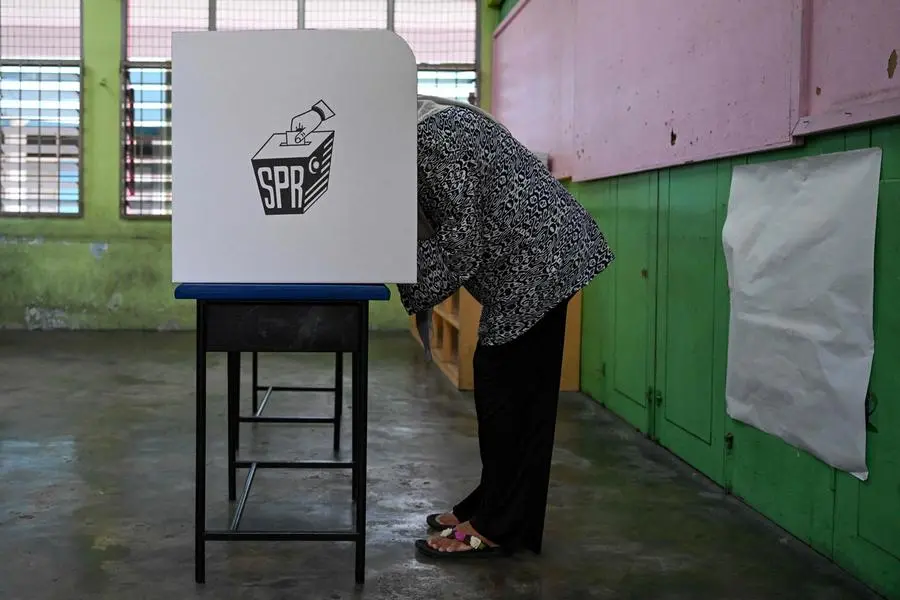PHOTO
Malaysians went to the polls in six states Saturday to vote for state assembly members in elections being closely watched as an indicator of support for Prime Minister Anwar Ibrahim's unity government.
While the elections are unlikely to immediately affect Anwar's current two-thirds majority in parliament, analysts said his hold on power could weaken if his Pakatan Harapan coalition suffers a setback, especially among Malay Muslim voters in the largely Islamic Southeast Asian nation.
Polling centres opened at 8 am (0000 GMT), with more than 9.7 million voters expected to cast votes to elect 245 assembly members in the states of Kelantan, Terengganu, Kedah, Penang, Selangor and Negeri Sembilan.
Of the six states, Anwar's coalition holds three, while the rest are controlled by an influential rural-based Malay Muslim alliance led by former prime minister Muhyiddin Yassin.
Malays account for two-thirds of Malaysia's 33 million people, which include large ethnic Chinese and Indian minorities.
Anwar went on an aggressive whirlwind tour of the states during the two-week campaign period, promising increased financial subsidies to paddy farmers, economic development aid and job opportunities.
The prime minister, who had campaigned on a promise of reforms in last year's general elections, is pushing for a more inclusive society where other races are allowed greater participation, while his opponents want primacy of the Malay Muslim majority.
Opposition coalition Perikatan Nasional has expressed confidence in making further inroads.
One key Perikatan member is the PAS party, which aims to create a theocratic state in Malaysia.
Having won 49 parliamentary seats, or more than 20 percent of the 222-member parliament last year, PAS has in recent months stepped up racial and religious rhetoric to shore up support.
Anwar became prime minister last November following a political impasse that saw his party win the most seats in the general election but fall short of the outright majority needed to form a government.
That forced him into an alliance with former foes in the United Malays National Organisation to secure a two-thirds parliamentary majority and approval from Malaysia's king to form a "unity government".
The coalition has so far held together in a country that had seen three leadership turnovers in as many years after scandal-tainted Najib Razak was voted out as prime minister in 2018 over massive corruption at state fund 1MDB.





















